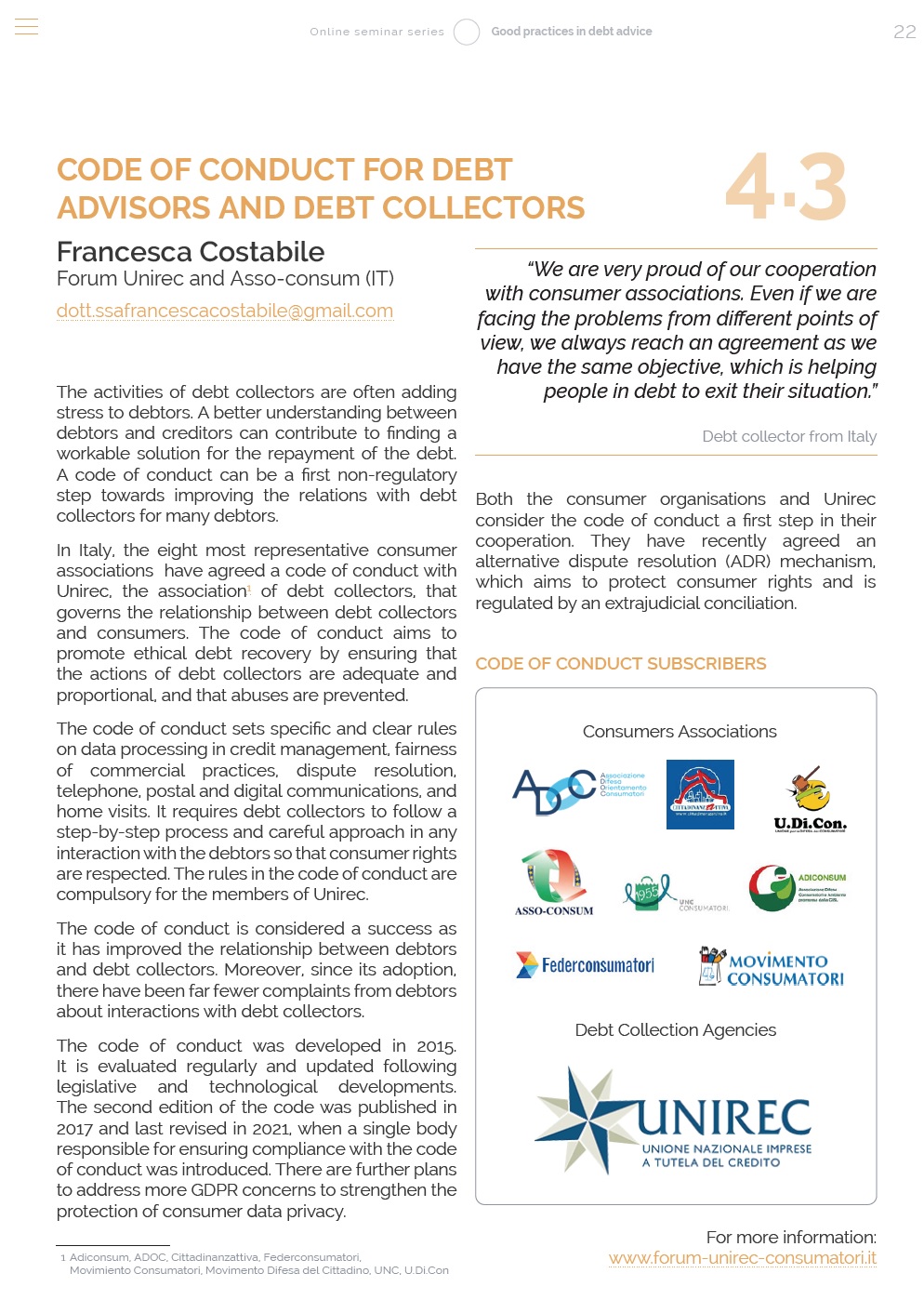The activities of debt collectors are often adding stress to debtors. A better understanding between debtors and creditors can contribute to finding a workable solution for the repayment of the debt. A code of conduct can be a first non-regulatory step to improve the relations for many debtors with debt collectors.
In Italy, the eight most representative consumer associations[1] have agreed with the association of debt collectors[2] a code of conduct governing the relationship between debt collectors and consumers. The code of conduct aims to promote ethical debt recovery by ensuring that the actions of debt collectors are adequate, proportional and abuses are prevented.
The code of conduct sets specific and clear rules on data processing in credit management, fairness of commercial practices, dispute resolution as well as telephone, postal and digital communications and home visits. It requires debt collectors to follow a step-by-step process and careful approach in any interaction with the debtors so that consumer rights are respected. The rules in the code of conduct are compulsory for the members of the Italian debt collectors association.
The code of conduct is considered a success as it has improved the relationship between debtors and debt collectors. Moreover, since their adoption there are much less complains from debtors about the interactions with debt collectors.
The code of conduct was developed in 2015 and it is evaluated regularly and updated following legislative and technological developments. The second edition of the Code was published in 2017 and has been last revised in 2021 with the introduction of a single body responsible for ensuring the compliance with the code of conduct. There are further plans to include more GDPR concerns to strengthen the protection of consumer data privacy.
Both the consumer organisations and debt collectors association consider the code of conduct a first step in their cooperation. They have recently agreed an Alternative Dispute Resolution (ADR) mechanism which aims to protect consumer rights and is regulated by an extra-judicial conciliation.
[1] Adiconsum, ADOC, Cittadinanzattiva, Federconsumatori, Movimiento Consumatori, MOvimiento Diffesa del Cittadino, UNC, U.Di.Con
[2] UNIREC



